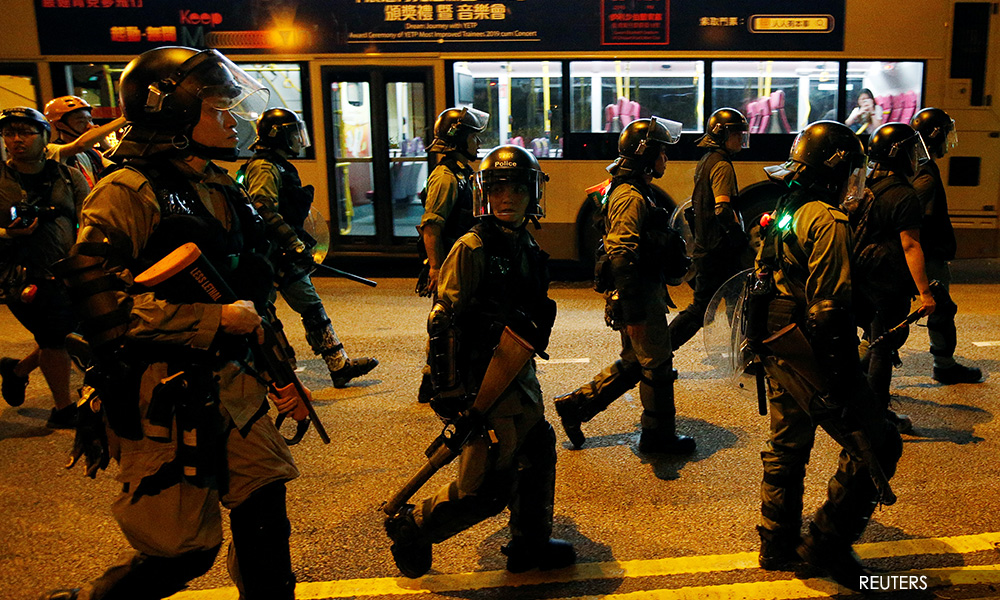Hong Kong police fired tear gas and water cannon amid running battles with brick-throwing protesters in driving rain on Sunday after violent clashes a day earlier in which police fired tear gas for the first time in more than a week.
At least six petrol bombs were thrown by protesters, some of whom took off down narrow side streets. The water cannon, which had not been used in years of anti-government protests, could not follow.
The Chinese-ruled city's MTR rail operator had suspended some services to try to prevent people gathering but the protesters, calling for democracy for the former British colony, made it to a sports stadium in the vast container port of Kwai Chung, from where they marched to nearby Tsuen Wan.
Some dug up bricks from the pavement and wheeled them away to use as ammunition, others sprayed detergent on the road to make it slippery for the lines of police. Clashes spread in many directions.
The vast majority marched peacefully.
Police had warned earlier they would launch a "dispersal operation" and told people to leave. Hundreds remained long after dusk fell, discussing what to do next, surrounded by empty tear gas canisters, bricks, metal railings and other debris.
"Some radical protesters have removed railings... and set up barricades with water-filled barriers, bamboo sticks, traffic cones and other objects," they said in a statement.
"Such acts neglect the safety of citizens and road users, paralysing traffic in the vicinity," the statement said.
Activists threw petrol bombs and bricks on Saturday in the gritty industrial district of Kwun Tong, on the east of the Kowloon peninsula.
'Last chance'
M Sung, a 53-year-old software engineer in a black mask emblematic of the many older, middle-class citizens at the march, said he had been at almost every protest and would keep coming.
"We know this is the last chance to fight for 'one country, two systems', otherwise the Chinese Communist Party will penetrate our home city and control everything," he said.
"If we keep a strong mind, we can sustain this movement for justice and democracy. It won’t die," Sung said.

Protesters say they are fighting the erosion of the "one country, two systems" arrangement under which Hong Kong returned to China in 1997 with the promise of continued freedoms not enjoyed on the mainland for 50 years.
The protests, which started over a now-suspended extradition bill, have rocked Hong Kong for three months and plunged the city into its biggest political crisis since the handover.
They also pose a direct challenge for Communist Party leaders in Beijing, who are eager to quell the unrest ahead of the 70th anniversary of the founding of the People's Republic of China on Oct 1.
Beijing has sent a clear warning that forceful intervention is possible, with paramilitary forces holding drills just over the border.
Transport to the airport appeared normal on Sunday, despite protesters' plans for a day-long "stress test" of transport in the international aviation and financial hub.
Police said they strongly condemned protesters "breaching public peace" and that 19 men and 10 women had been arrested after Saturday's violence. More than 700 have been arrested since the demonstrations began in June.
The neighbouring gambling territory of Macau, a former Portuguese colony that returned to Chinese rule in 1999, elected former legislature head Ho Iat Seng as its leader on Sunday - the sole approved candidate.
Ho, who has deep ties to China, is expected to cement Beijing's control over the "special administrative region", the same status given to Hong Kong, and distance it from the unrest there.
- Reuters

